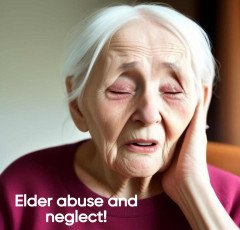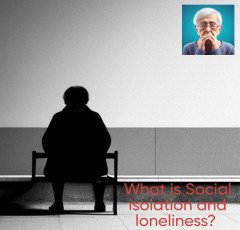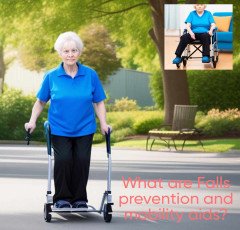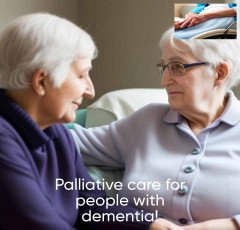
Elder Abuse And Neglect

Any purposeful or careless conduct that hurts or distresses an elderly person generally seen as someone over the age of 60 is referred to as elder abuse or elder neglect.
Elder abuse can take many different forms, such as neglect, which is the absence of proper care or protection, or it can be physical, emotional, sexual, or financial in nature.
Physical abuse against elderly people can take the form of hitting or pushing; emotional abuse can take the form of verbal threats or insults; sexual abuse can take the form of unwanted touching or sexual assault; financial abuse can take the form of stealing money or property; and neglect can take the form of failing to give elderly people the necessary medical care, food, or shelter.
Family members, caregivers, and others in positions of trust may abuse or neglect elderly people, which can have detrimental effects on the victim's health, wellbeing, and quality of life. It's critical to understand the warning signs of elder abuse and to alert the proper authorities, such as adult protective services or law enforcement, of any suspicions or worries.
Elder abuse and neglect can have serious negative effects on the victim's health, wellbeing, and finances.
Abuse of the body can leave victims with wounds including bruises, slashes, or fractured bones. Anxiety, depression, and other mental health problems can result from emotional abuse. Physical harm, as well as mental pain and shame, can result from sexual abuse.
Financial abuse can cause elderly people to lose their independence and leave them without the means they need to support themselves. Neglect can result in infections, dehydration, and starvation, among other major health issues.
Elder abuse and neglect are serious issues that are frequently underreported, and victims may be reluctant to come forward for a variety of reasons, including embarrassment, fear of retaliation, and ignorance of their legal rights. For victims and their families to get support, there are resources accessible.
It is crucial to act if you have suspicions an older adult is being mistreated or ignored.
You can inform adult protective services, the police, or a neighborhood aging services organization about suspected elder abuse. Assisting and supporting older folks in your life can also be done by volunteering to connect them with resources or by supplying emotional support.
A community-wide effort to increase awareness, advance education, and encourage reporting is necessary to prevent elder abuse and neglect.
This entails training caregivers and healthcare workers on the warning signs of elder abuse, offering services for senior citizens to safeguard themselves against abuse, and putting policies and programs in place to address the problem.
By giving elder care that is courteous, attentive to their needs, and supportive of open communication, family members and caregivers can help prevent elder abuse. This entails offering the support and assistance that is required, such as medical aid, money management, and emotional support.
Organizations and governmental bodies can also contribute to the prevention of elder abuse by putting in place policies and initiatives that encourage awareness and education, offer resources and assistance to victims, and hold offenders accountable.
In order to protect older people's safety, wellbeing, and dignity, it is important for individuals, families, communities, and governmental organizations to work together to avoid elder abuse and neglect.
Following are some recommendations for avoiding elder abuse and neglect:
Keep in touch:
Seniors who are isolated or lonely may be more susceptible to abuse. Keeping in touch with your loved ones, friends, and community can make you feel less alone and give you a support system.
Know the warning signs of elder abuse so you can spot it early and take appropriate action. Unexpected injuries, behavioral or emotional changes, and money transactions are a few examples of common warning indicators.
Check references and conduct a comprehensive background check on any caregivers you are considering hiring, including home health aides.
Consider working with a dependable family member, friend, or financial expert to manage your finances if you are an older adult. Be cautious when granting access to your bank accounts.
Report suspected abuse:
Contact the proper authorities right away if you believe that an older adult is being mistreated or neglected.
Encourage education and awareness:
You may help minimize the prevalence of abuse by educating yourself and others about the warning signs of elder abuse and the services available to prevent and address it.
Together, we can ensure that older individuals may live in safety, with dignity, and without fear of danger by preventing elder abuse and neglect.
There are options available to offer assistance and support if you or someone you know is facing elder abuse or neglect. The following resources can be useful:
Adult Protective Services (APS) is a social service initiative that aids senior citizens who have been the targets of abuse or neglect. They can conduct investigations and take measures to safeguard senior citizens from maltreatment, neglect, or exploitation.
National Domestic Violence Hotline:
The National Domestic Violence Hotline offers assistance and resources to those who have been the victims of domestic abuse, especially senior citizens who may be being mistreated by a family member or caregiver.
The National Center on Elder Abuse (NCEA):
is a resource center that offers guidance, training, and materials on preventing and responding to elder abuse and neglect.
The National Council on Aging (NCOA):
A nonprofit group, offers older persons a range of resources, including guidance on preventing elder abuse and neglect.
The National Institute on Aging (NIA):
Is a federal organization that conducts aging-related research and offers resources, including details on elder abuse and neglect.
It is crucial to act to protect an older adult if you have reason to believe that they are being mistreated or ignored. By informing the proper authorities about suspected abuse, you can stop additional damage and give the victim the support they need.
It is crucial to understand that you are not at fault and that you are not alone if you have experienced elder abuse or neglect. You can get assistance from resources, and reporting the abuse can help stop additional damage.
If you believe you are a victim of elder abuse or neglect, you can pursue the following actions:
You are entitled to a life free from mistreatment and neglect. The first step in defending yourself and obtaining the support you require is to ask for assistance.
It's crucial to understand that as we age, we may be more susceptible to abuse and neglect as a result of cognitive, physical, or other health-related problems. Therefore, it is essential to take precautions to safeguard oneself and stop abuse and neglect.
The following advice can help you avoid elder abuse and neglect:
Being safe and healthy as we age requires taking action to stop abuse and neglect.
We may safeguard ourselves and people around us from danger by being aware of the warning signs of abuse, remaining educated, and getting assistance when necessary.
Here are some extra precautions you can take to safeguard yourself against elder abuse and neglect in addition to the advice previously provided:
Keep your body in good shape:
Being physically fit can help lower your chances of abuse and neglect. This include maintaining an active lifestyle, eating a nutritious diet, and going to the doctor on a regular basis.
Maintain your mental health:
Maintaining your mental health is essential for lowering your risk of abuse and neglect. This can involve maintaining social connections, engaging in hobbies you enjoy, and getting help if you're experiencing any mental health problems.
Technology can be a fantastic tool for staying connected, but it can also be exploited to take advantage of or hurt older people. Be careful while disclosing personal information online and make use of social media platforms' privacy settings.
Recognize your rights:
You are legally entitled to certain rights and protections as an older adult. By being aware of your rights, you can spot and report abuse or neglect.
Be on the lookout for any indications of mistreatment or neglect, including as alterations in behavior or mood, unexplained wounds, or financial exploitation.
It takes time to take preventative measures against elder abuse and neglect. You may lessen your risk of abuse and lead a safe and healthy life by remaining aware, exercising caution, and asking for assistance when necessary.
It's crucial to keep in mind that society as a whole, as well as older persons, is responsible for preventing elder abuse and neglect. Elder abuse and neglect may be stopped and addressed by all of us.
The following are some ways that we can all do our part to stop elder abuse and neglect:
Last but not least, it's vital to remember that neglect and abuse of elderly people can take many various forms and may not always be obvious. We must be watchful and proactive as a society in recognizing and resolving these concerns.
Reporting any abuse or neglect of an older senior you suspect to the right authorities is crucial.
This can involve local aging services organizations, law enforcement, or adult protective services. The victim can be protected, additional suffering can be avoided, and the abuser can be held responsible for their acts by reporting the abuse.
We all have a duty to prevent and confront elder abuse and neglect because it is never acceptable. We can create a safer world by remaining informed, increasing awareness, and acting.















 One World Collection
One World Collection  Online Marketing
Online Marketing  Best Sellers On Amazon
Best Sellers On Amazon  The Secret Email System
The Secret Email System  Creative Brief For Video Shoot
Creative Brief For Video Shoot  Unreal Engine 5 For Beginners Learn The Basics Of Virtual Production
Unreal Engine 5 For Beginners Learn The Basics Of Virtual Production  Artificial Intelligence
Artificial Intelligence  Top Rated From Amazon
Top Rated From Amazon  Online Technology Classes
Online Technology Classes  ASPINAL LONDON
ASPINAL LONDON  NordPass
NordPass  Best Robotic Vacuum Cleaners
Best Robotic Vacuum Cleaners  ELECTRONIC ACCESSORIES
ELECTRONIC ACCESSORIES  Men Clothing
Men Clothing  Only For The United States
Only For The United States  Best Selling Books
Best Selling Books  RPM 3.0
RPM 3.0  NordVPN
NordVPN  Amazon Best Selling Products
Amazon Best Selling Products  All Wireless Products
All Wireless Products  ASUS Laptop
ASUS Laptop  Unlimited access to classes on illustration, photography, design, film, music
Unlimited access to classes on illustration, photography, design, film, music  Smart Doorbell
Smart Doorbell  NordLocker
NordLocker  Favorite Company (Cuelinks)
Favorite Company (Cuelinks)  BEST SELLER TOP10
BEST SELLER TOP10  Sennheiser
Sennheiser  SEO Checklist
SEO Checklist  Graphics & Design
Graphics & Design  Best Home Appliances
Best Home Appliances  Acer Laptop
Acer Laptop  1150+Trendy kids coloring pages Bundle
1150+Trendy kids coloring pages Bundle  The Click Engine
The Click Engine  Hot Bags For Pain Relief
Hot Bags For Pain Relief  Women Fashion
Women Fashion  SOFAS
SOFAS  TitTok Revolution
TitTok Revolution  Hello Theme
Hello Theme 
















